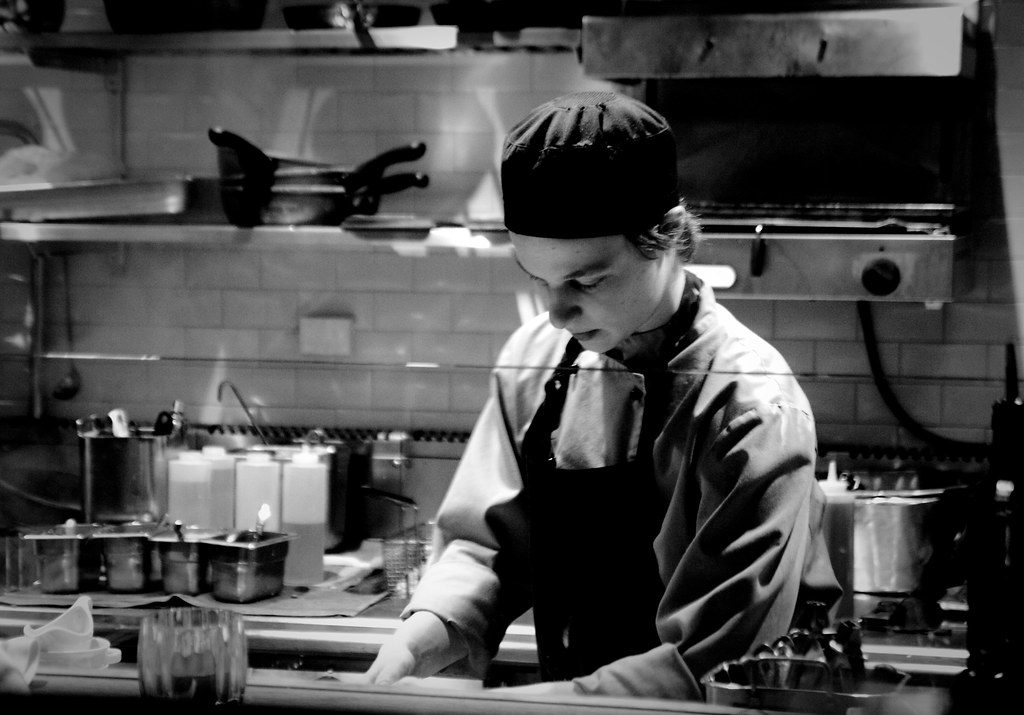Today, we’re examining aluminium pans, which are frequently used in restaurant kitchens. Have you ever questioned why chefs favour these gleaming, functional cooking utensils? Aluminium pans have a remarkable ability to conduct heat, are durable, and are inexpensive, making them a vital tool for both chefs and restaurant owners.
Despite the wide range of cookware options available to restaurants, aluminium pans continue to be a common option in commercial kitchens. This common predilection is supported by several strong arguments:
- Excellent Heat Conductivity: Aluminium is known for having a remarkable capacity to conduct heat. It effectively disperses heat throughout the pan’s surface, ensuring that food cooks evenly and lowering the possibility of hot spots. Chefs can have more control over the cooking process thanks to this feature, which leads to dependably tasty dishes.
- Aluminium pans are substantially lighter than comparable materials like cast iron or stainless steel, making them easy to handle. They are simpler for cooks to manage because of this quality, especially when working in frantic restaurant settings where agility and quick motions are crucial.
- Aluminium has a high thermal conductivity, which aids in its capacity to heat up quickly and efficiently. Chefs value this quality because it enables them to start cooking right away, saving them important time in a busy kitchen.
- Durability: Aluminium pans are surprisingly durable considering their low weight. They are durable enough to sustain frequent use in industrial kitchens without easily warping or denting. Due to their durability, they are an economical option for restaurants because they can resist the demands of high-volume cooking without frequently needing replacement.
- Reasonably priced compared to other cookware options, aluminium pans are an affordable option for restaurants, especially those on a tight budget. Restaurants frequently need many pans for varied culinary operations, and aluminum’s price makes it possible to equip the kitchen efficiently.
- Maintenance is simple: Cleaning and caring for aluminium pans is easy. They frequently contain non-stick coatings or are non-stick, making food residues and stains simpler to remove. This function streamlines the cleaning procedure and gives restaurant personnel significant time back.
While cooks frequently use pans with non-reactive coatings or linings to offset aluminium pans’ limitations, such as their reactivity with acidic chemicals, aluminium pans do have some drawbacks. Despite these drawbacks, aluminium pans are a popular and useful option for restaurants wishing to efficiently and reliably produce culinary marvels because of its high heat conductivity, lightweight nature, durability, affordability, and ease of maintenance.

Do you need to season aluminum pots?
No, seasoning is not necessary for aluminium pans. Cast iron and carbon steel cookware, for example, are frequently subjected to the seasoning process to give them a naturally non-stick surface and increase their durability. Aluminium pans, however, do not benefit from seasoning in the same way because they frequently have anodized or non-stick coatings on their surfaces.
It’s crucial to adhere to the manufacturer’s recommendations for regular care and upkeep if you own aluminium pans with non-stick coatings. Typically, this entails avoiding the use of abrasive cleaning supplies or kitchenware that could harm the coating. To maintain the condition of aluminium pans, regular cleaning with mild dish soap and a soft sponge is usually adequate.
The best way to clean and maintain plain aluminium pans without non-stick coatings is to wash them in warm, soapy water using a non-abrasive sponge or towel. It’s crucial to stay away from utilising abrasive cleaning agents or scrub brushes that could scrape or harm the surface. Additionally, completely drying the pans after cleaning them can aid in avoiding corrosion or water stains.

Why is it uncommon for aluminium pots to be used in domestic kitchens?
While aluminium pots and pans are common in professional kitchens, they are less common in home kitchens. There are a few reasons why using aluminium pots for cooking in the home is becoming less popular:
- Foods that are Acidic Reactive: Being a reactive metal, aluminium can react with components that are acidic or alkaline, giving food a metallic flavour and possibly discolouring it. This reaction raises questions for some foods, like those with tomatoes, citrous fruits, or sauces made with vinegar. As a result, many individuals choose non-reactive cookware alternatives for their home kitchens, including stainless steel or ceramic.
- Safety Issues: Using aluminium cookware has historically raised questions regarding possible health effects. It was thought that consuming too much aluminium could contribute to a number of illnesses, including Alzheimer’s disease. However, later research has indicated that, particularly when using well coated or anodized aluminium cookware, the amount of aluminium that is expected to leach into food during cooking is negligible and unlikely to pose serious health hazards.
- Resilience and Wear: Over time, aluminium pots and pans are vulnerable to warping, denting, and scratching, especially if they are not coated with another material or reinforced with it. Some people prefer cooking utensils made of stainless steel or cast iron because of their better durability and lifetime, which can be impacted by wear and tear.
- Consumer Preferences and Availability: The cookware market has developed to meet consumer expectations and preferences. As a result, non-reactive, long-lasting, and aesthetically pleasing alternatives including stainless steel, non-stick coatings, and enamelled cast iron have grown in favour. The extensive usage of aluminium pots and pans in household kitchens has decreased as a result of this.
It’s crucial to remember that despite these worries, aluminium pots and pans are still often used in residential kitchens, particularly when they are anodized to increase their longevity and decrease reactivity. Furthermore, aluminium foil is a typical household component used for a variety of cooking and food storage needs.
Relevant Articles
Why Are Saucepan Handles Usually Made From Wood Or Plastic?

Comments are closed